We’ve given this advice quite often. Don’t mistreat your garbage disposal. There’s just no other way around this. We’ll give the same old advice yet again, but it’s about time the topic was dealt in more detail.
The garbage disposal provides homeowners a huge respite from dealing with food leftovers and kitchen waste. The waste can disappear in an instant with just a turn of the switch. With the disposal up and running, you’ll probably hardly deal with clogged kitchen sinks. However, in case you need help with sink repair you can seek the help of Roto-Rooter.
A well-maintained garbage disposal can unfailingly serve you for about 10-odd years. (Its effective life is much longer, but in the last few years you might face the glitches too often.) Proper use always plays a crucial role. While the instruction manual gives you all the details about how to use the equipment, there aren’t many revelations about what you can and can’t put in the sink disposal.
Here are the 20 things that shouldn’t go down the sink disposal at any cost.
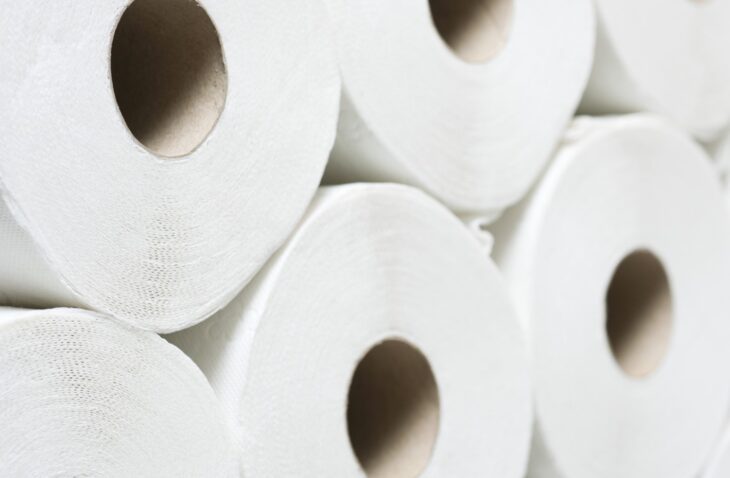
Source: Inhabitat
Contents
- 1. Regular trash
- 2. Oil and Grease
- 3. Onion skin
- 4. Potato peels
- 5. Orange and lemon rinds
- 6. Fibrous fruits and veggies
- 7. Bones
- 8. Shells
- 9. Pasta and spaghetti
- 10. Rice
- 11. Bread and Flour
- 12. Tea and coffee residue
- 13. Eggshells
- 14. Corn husks
- 15. Pits and seeds
- 16. Drain cleaners
- 17. Animal litter
- 18. Condoms
- 19. Medicine
- 20. Paint and solvents
1. Regular trash
Even though sink disposals are popularly called garbage disposals, they are not your alternate to a trash can. The garbage disposal is not meant for dumping tissue paper, paper towels, wrappers, stickers, or any kind of flushable or degradable wipes.
2. Oil and Grease
One of the most common reasons behind jammed sewer lines in America is the disposal of cooking grease and oil in the drains. Oil and grease do not mix with water and can solidify in the cold environment of the drains. You’ll have to be more vigilant about fats in food too, like milk and animal fat, and the fat in salad dressings and mayonnaise.
3. Onion skin
Onion waste is never a problem for garbage disposal. It’s the thin skin on the outer layer that can create a ruckus. This layer can escape the blades of the disposal and hold up other things too. The right place for the onion skin is always the trash can.

Source: dollarsandsense
4. Potato peels
Potato peels give the same challenge as onion skins. The potato peels may not get ground in the sink disposal and create trouble in the drain.
5. Orange and lemon rinds
Orange and lemon rinds can clog the drain even if they are made to go through the sink disposal. You should either dispose of these in the trash. If you have a creative bent, you can try making some pleasant-smelling potpourri from the peels.
6. Fibrous fruits and veggies
Some fibrous fruits and vegetables, like pumpkin, banana, celery, etc. can get all sticky and mushy in the garbage disposal. Maybe the disposal can handle a little bit now and then, but chunks of these and you’ll definitely be facing issues.
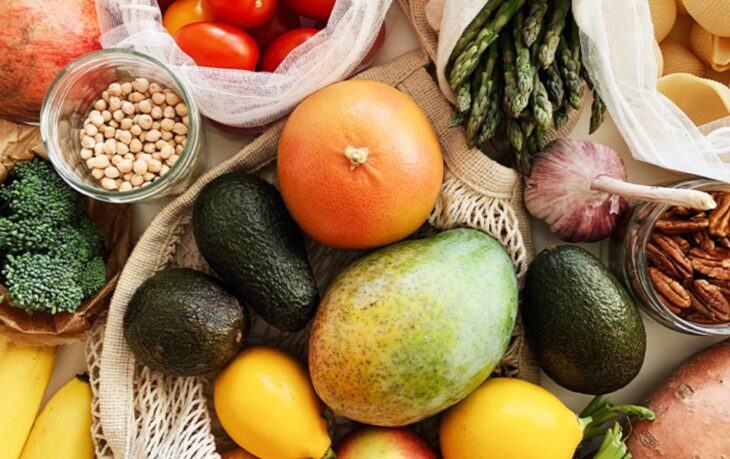
Source: Healthline
7. Bones
Bones are an extreme business. The blades of garbage disposal are not designed to grind hard materials like animal bones. An occasional chicken wing or fishbone won’t do harm but avoid putting in bigger bone pieces in the disposal.
8. Shells
Just like bones, shells from seafood like crabs and oysters are not supposed to go in the disposal. These are too dense to be tackled by the blades and should rightfully belong to the trash can.
9. Pasta and spaghetti
Letting pasta and spaghetti pass through the disposal can mean big trouble for the drain. These items hold up water and expand multifold if left to soak in water. Don’t panic if you throw in a little bit of leftover pasta. Just flush it down with running water for some time so that it can pass through to the main drainage line.
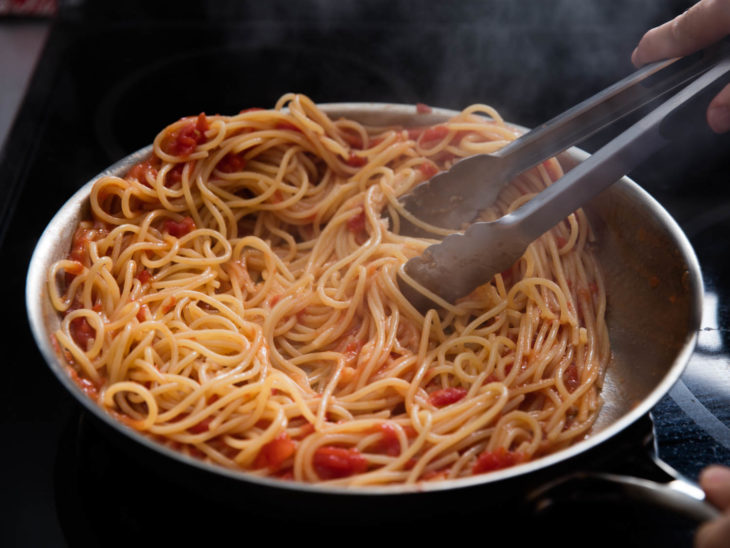
Source: Serious Eats
10. Rice
Pasta and rice are not very different in physical properties although their tastes differ. Throwing rice in the sink disposal too often or in large quantities could clog the kitchen sink and drain.
11. Bread and Flour
Flour and bread also have coagulating tendencies. They can accumulate and form lumps that can get lodged in the drain causing difficult clogs. Always use the trash can for disposing of bread and flour.
12. Tea and coffee residue
Tea strains and coffee grounds pass easily through the garbage disposal. But these items can also cause clogs in the drain in the long run. It is better to use these materials for composting and garden manure.
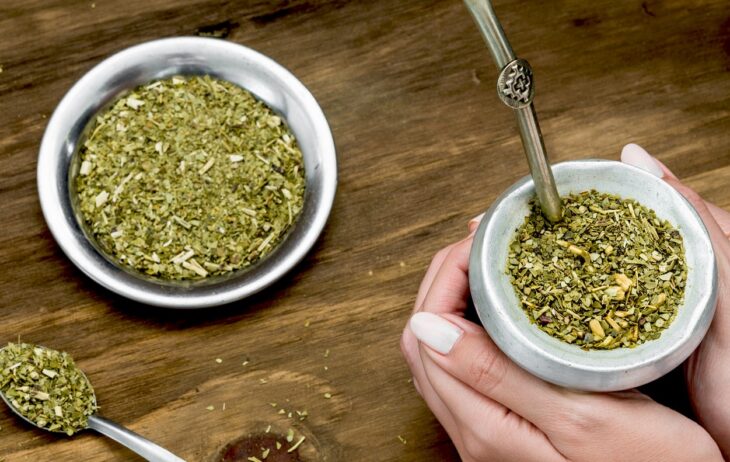
Source: Better Homes and Gardens
13. Eggshells
The thin membrane within the eggshells can trap other items in the drain and create a clog. Your garbage disposal is better off without the eggshells, no matter what you may have read on the internet about the blade-sharpening properties of shells.
14. Corn husks
Corn husks should be ideally disposed of in the trash can or recycled as compost. The husks should never be run in the sink disposal because they can lead to clogs.
15. Pits and seeds
Pits and seeds from peaches, avocados, and other fruits are too dense to be ground by the sink disposal. This can affect the efficiency of your equipment and may even damage the motor.
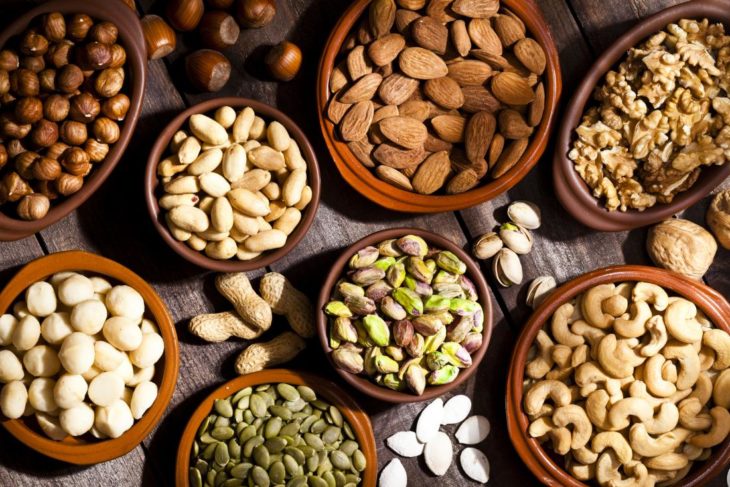
Source: Medical News Today
16. Drain cleaners
Drain cleaners are not good for the environment. They contain harmful chemicals that can disturb the sewer ecosystem and also corrode pipelines. The better option is to use gentle homemade cleaners comprising vinegar and baking soda.
17. Animal litter
Of all the things going down the sink disposal, animal litter could rank as the most repulsive and harmful item. Animal litter harbors harmful bacteria and parasites. Putting it in the drain is a definite health hazard. Besides, it can also clog the drains. You should look for more sustainable alternatives for disposing of pet feces.
18. Condoms
Condoms are usually non-latex and made of synthetic materials. They don’t break down easily. When disposed of in the drain, condoms can pollute water bodies.
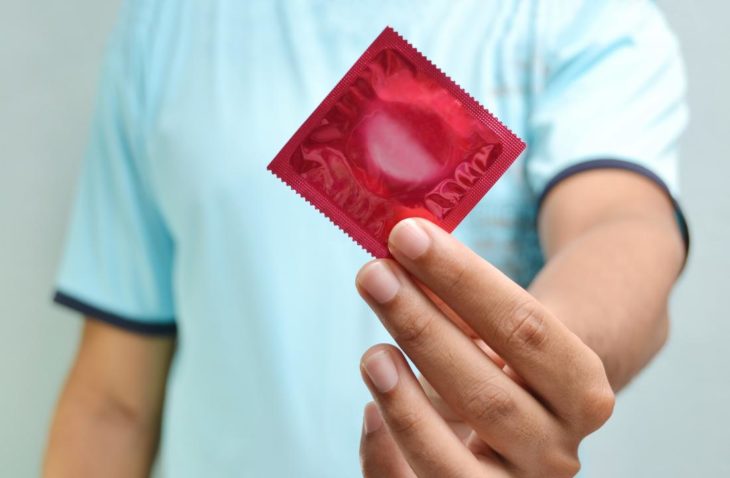
Source: Medical News Today
19. Medicine
Any unused or expired medicine should be properly disposed of as medical waste with pharmacies or clinics. Throwing medicines in the drain threatens the environment and aquatic life.
20. Paint and solvents
Paints and solvents contain harmful chemicals that should not mingle with drain water under any circumstance. These chemicals could enter water bodies and pose serious problems for the ecosystem.
It would be appropriate to clarify here that this is only an indicative list. This should give you a better idea of the nature of household waste unsuitable for sink disposal. Being aware is the first conscious step towards accepting responsibility. We hope that equipped with the information we have shared here, you will be able to adopt a more responsible attitude to the garbage disposal.
